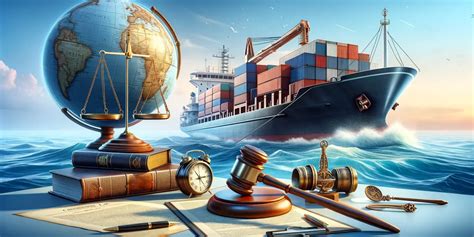

Introduction
Greetings, readers! Welcome to our comprehensive guide on maritime law. In today’s globalized world, the oceans serve as vital arteries for trade and commerce. With ships crisscrossing the vast expanse, it becomes imperative to establish a framework of laws to govern these maritime activities. So, who exactly controls maritime law? Let’s dive right in and explore the intricacies of this fascinating topic.
International Control of Maritime Law
UN Convention on the Law of the Sea (UNCLOS)
The UN Convention on the Law of the Sea (UNCLOS) stands as the cornerstone of international maritime law. Adopted in 1982, this treaty codifies the legal framework for all aspects of ocean use, including navigation, fishing, environmental protection, and dispute resolution. UNCLOS establishes the International Seabed Authority (ISA) to regulate activities in the deep seabed beyond national jurisdictions.
International Maritime Organization (IMO)
The International Maritime Organization (IMO) is a specialized agency of the United Nations responsible for developing and maintaining a comprehensive regulatory framework for global shipping. IMO’s regulations cover safety, environmental protection, and maritime security. The organization fosters international cooperation and facilitates the adoption of global standards for shipping operations.
National Control of Maritime Law
Coastal States
Coastal states exercise sovereignty over their territorial waters, which typically extend up to 12 nautical miles from the baseline. Within these waters, they have the authority to enact and enforce maritime laws, including regulations on navigation, fishing, and environmental protection. Coastal states also have the responsibility to ensure the safety and security of vessels within their territorial waters.
Flag States
The flag state refers to the country under whose flag a ship sails. Flag states have the primary responsibility to regulate their ships, regardless of where they operate. They are responsible for ensuring that ships meet international safety and environmental standards, as well as for enforcing labor laws and preventing illegal activities such as piracy and drug trafficking.
Enforcement of Maritime Law
Maritime Security
Maritime law enforcement agencies play a crucial role in ensuring the safety and security of the oceans. These agencies conduct patrols, investigate maritime incidents, and enforce laws against piracy, smuggling, and other illegal activities. They work in collaboration with national and international organizations to combat transnational maritime crime.
Dispute Resolution
Disputes arising from maritime activities can be resolved through various mechanisms, including negotiation, mediation, arbitration, and adjudication. The International Tribunal for the Law of the Sea (ITLOS) is a permanent court established under UNCLOS to adjudicate disputes related to the interpretation and application of the Convention.
Table: Summary of Maritime Law Control
| Entity | Jurisdiction | Responsibility |
|---|---|---|
| UN Convention on the Law of the Sea (UNCLOS) | International waters | Codifies legal framework for ocean use |
| International Maritime Organization (IMO) | Global shipping industry | Develops and enforces regulations for shipping safety, environmental protection, and security |
| Coastal States | Territorial waters (up to 12 nautical miles) | Regulate navigation, fishing, environmental protection, and safety |
| Flag States | Ships sailing under their flag | Ensure ship safety, enforce labor laws, prevent illegal activities |
Conclusion
The control of maritime law is a complex and multifaceted endeavor involving both international and national entities. From the broad framework established by UNCLOS to the specific regulations enforced by flag states, a comprehensive system of laws and regulations has been developed to govern the activities of ships and other vessels at sea. By understanding who controls maritime law, we can better appreciate the importance of ensuring the safety, security, and sustainability of our oceans.
Feel free to explore our other articles on maritime law and related topics for further insights into this fascinating subject.
FAQ about Maritime Law
Who controls maritime law?
- International organizations, such as the International Maritime Organization (IMO), regulate maritime law on a global level.
- National governments establish maritime laws within their own territorial waters.
- Regional organizations, like the European Maritime Safety Agency (EMSA), oversee maritime law in specific regions.



